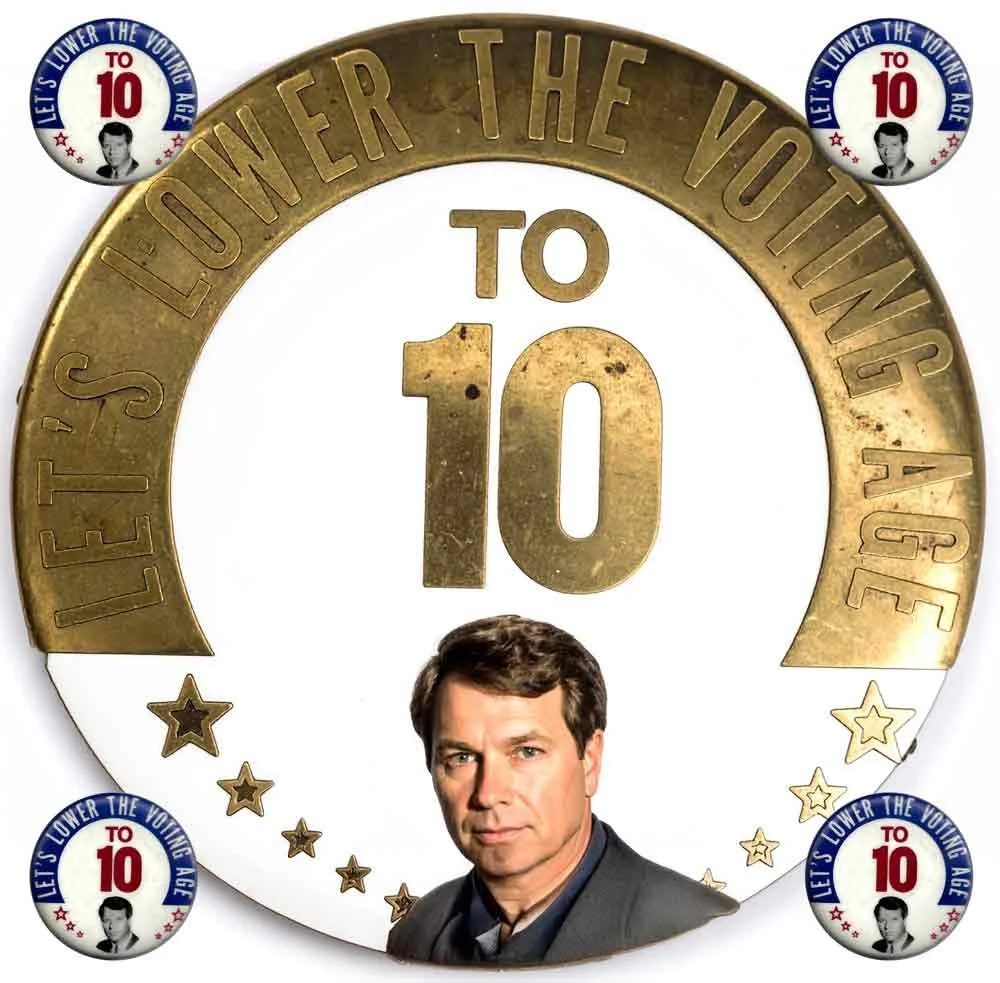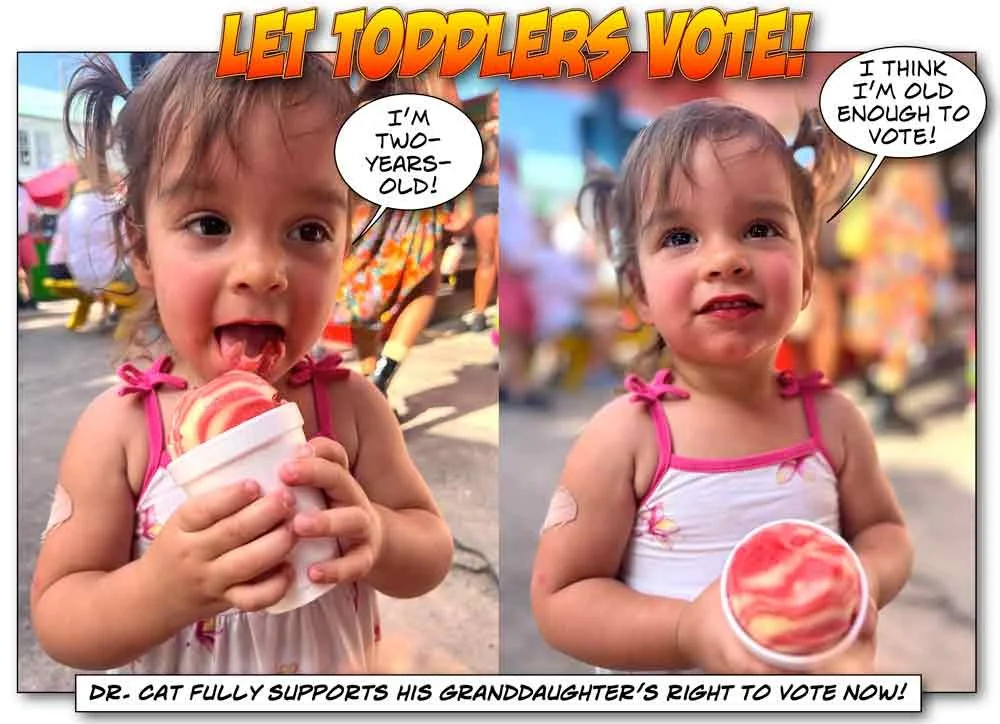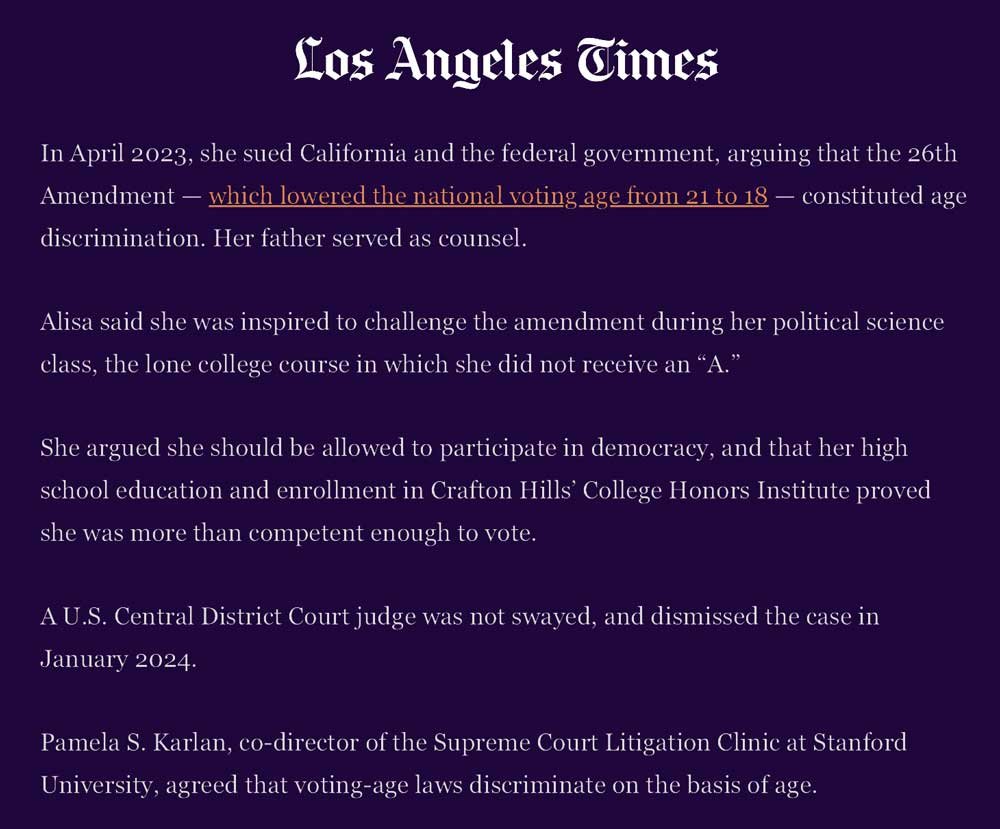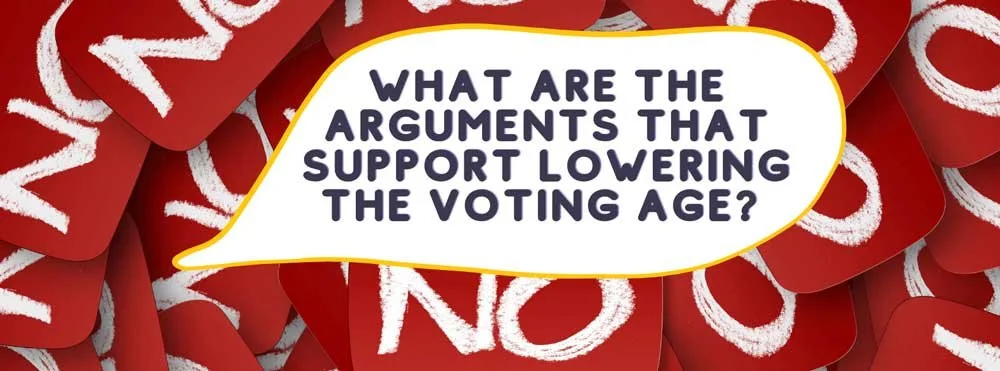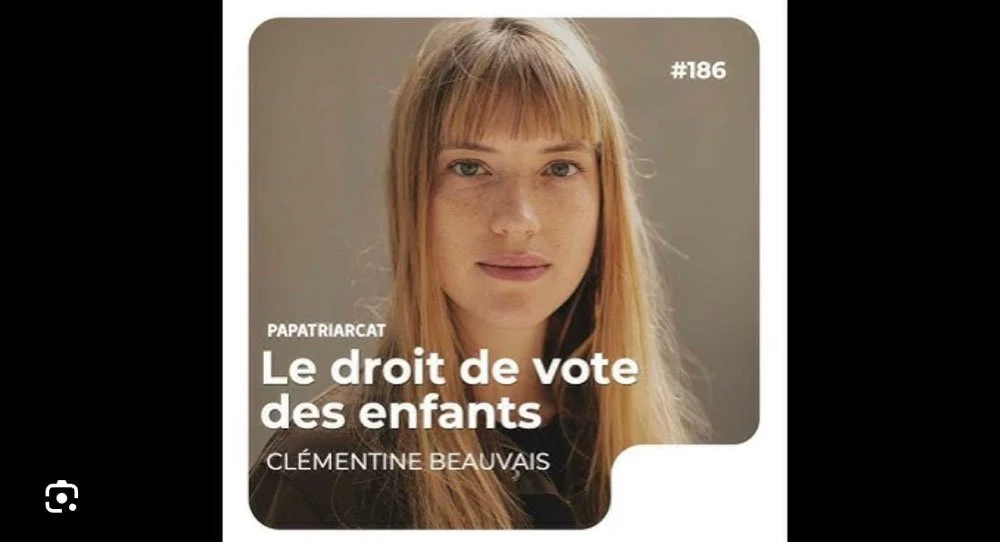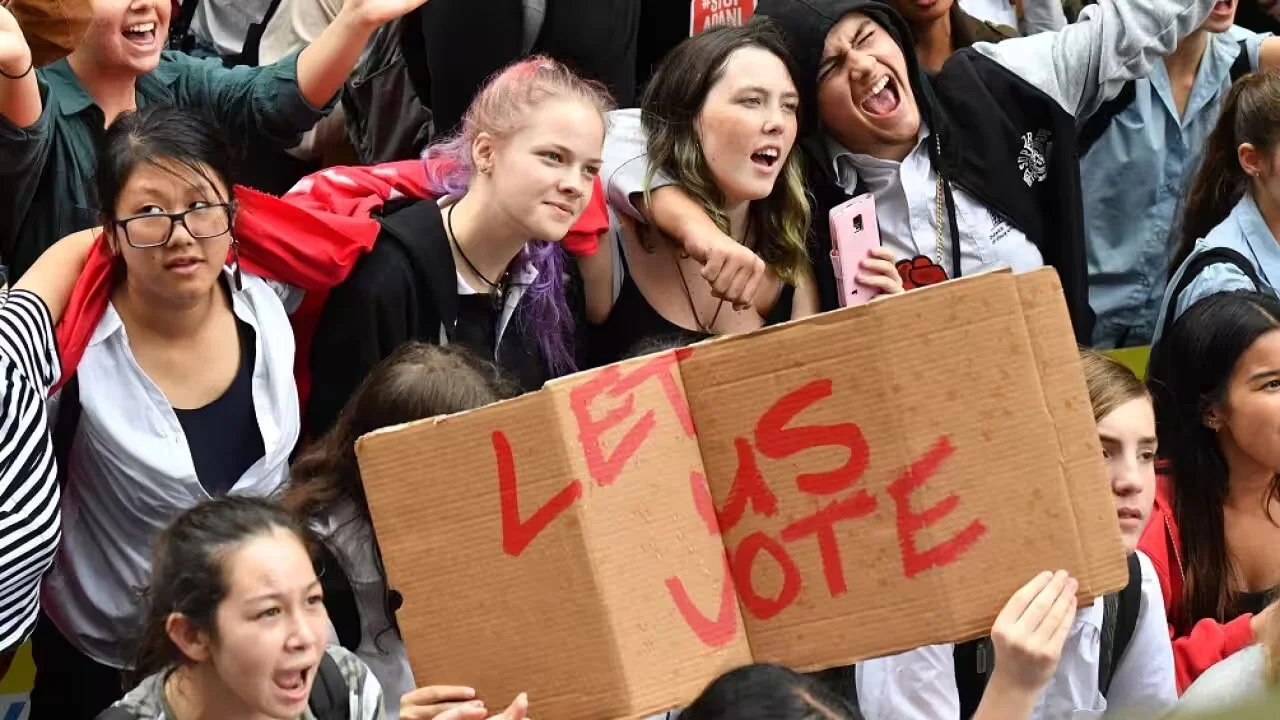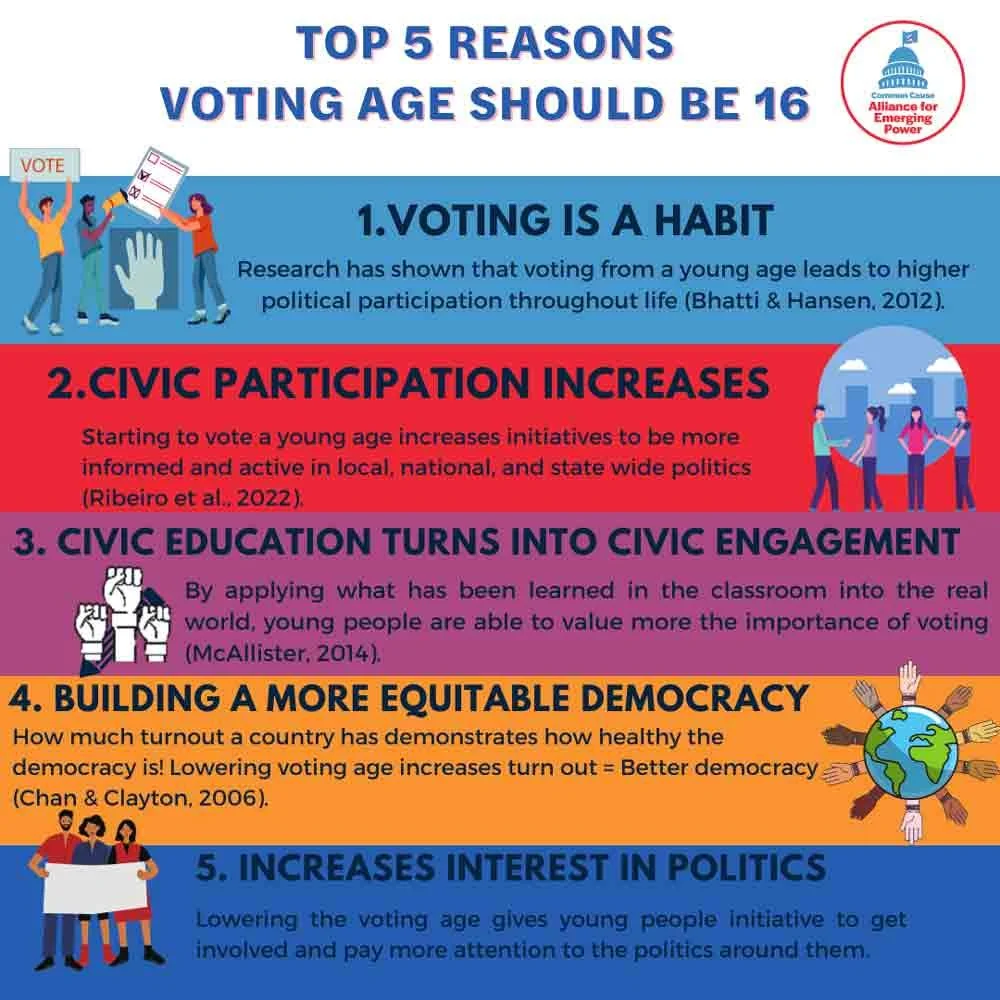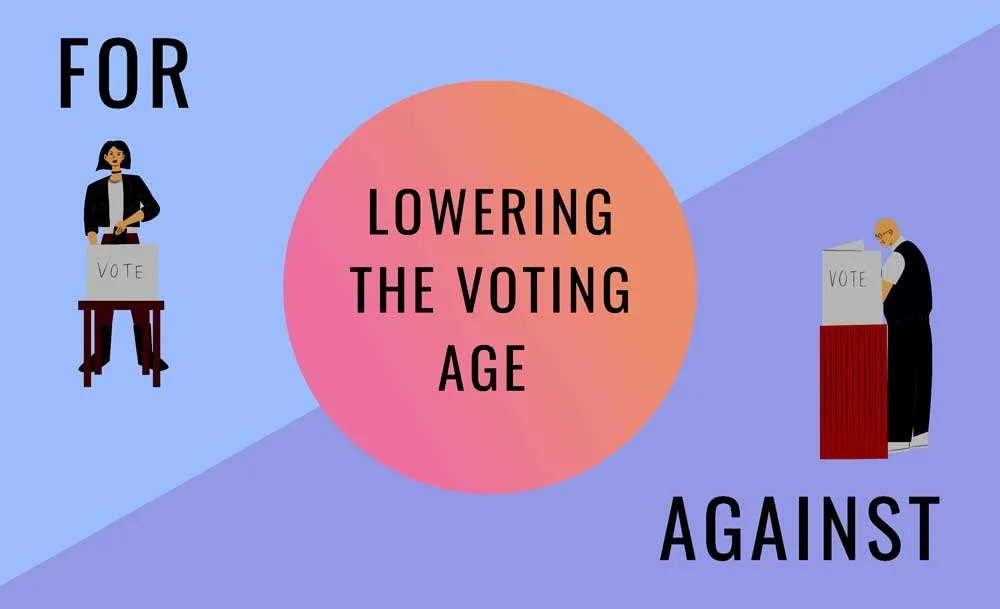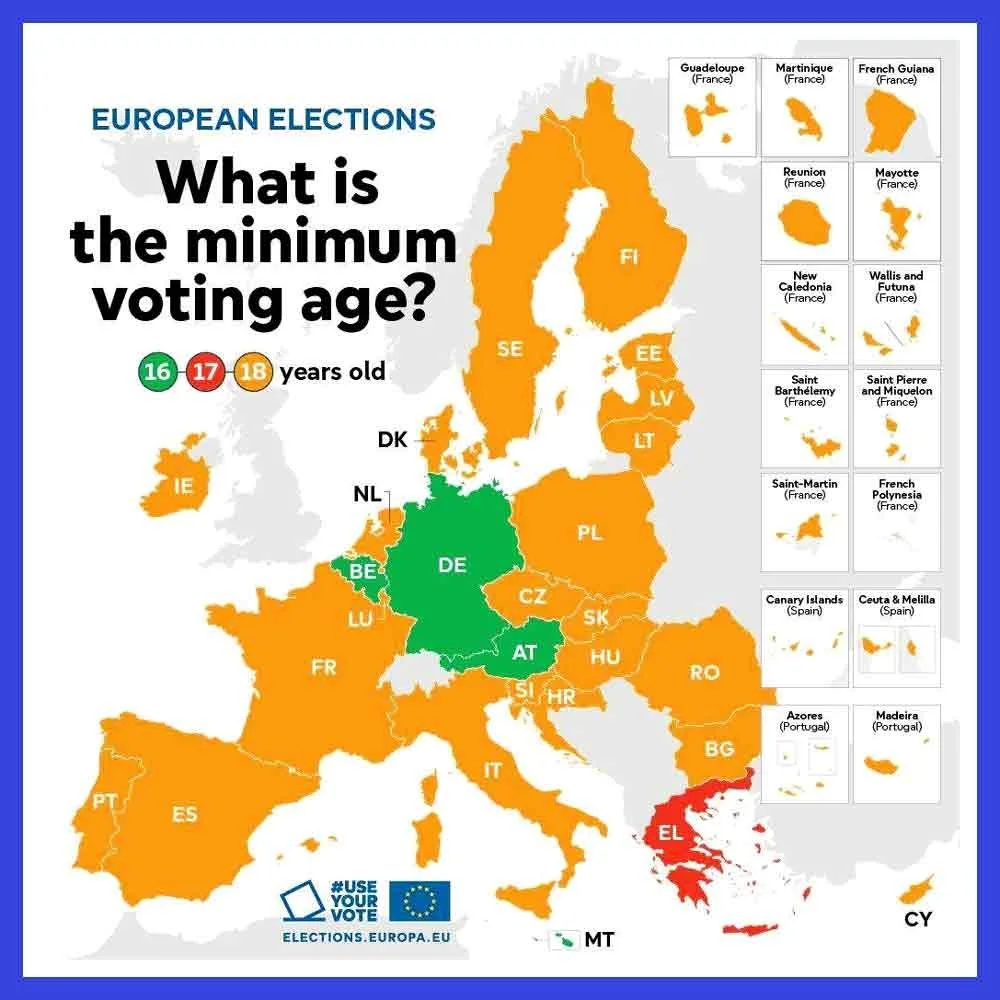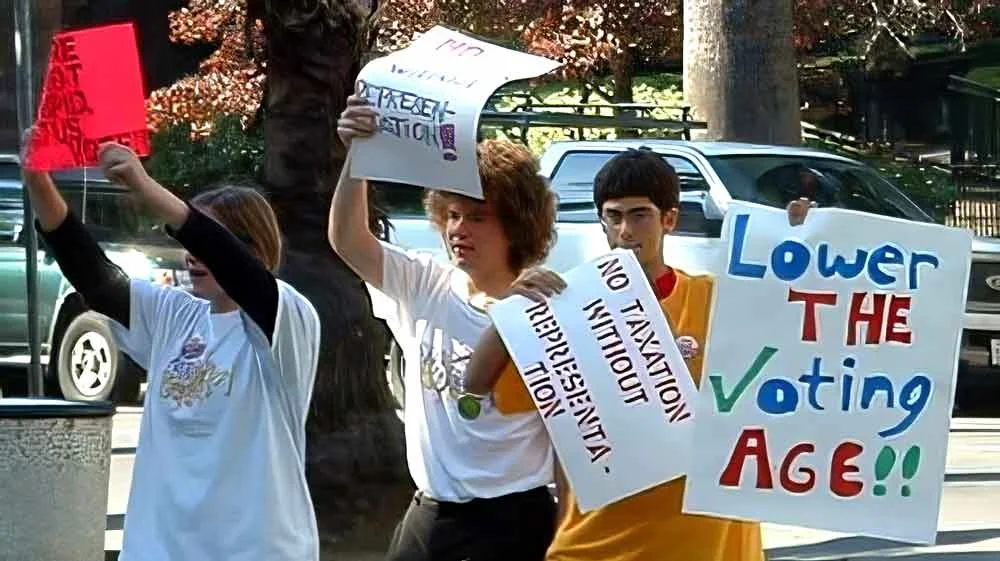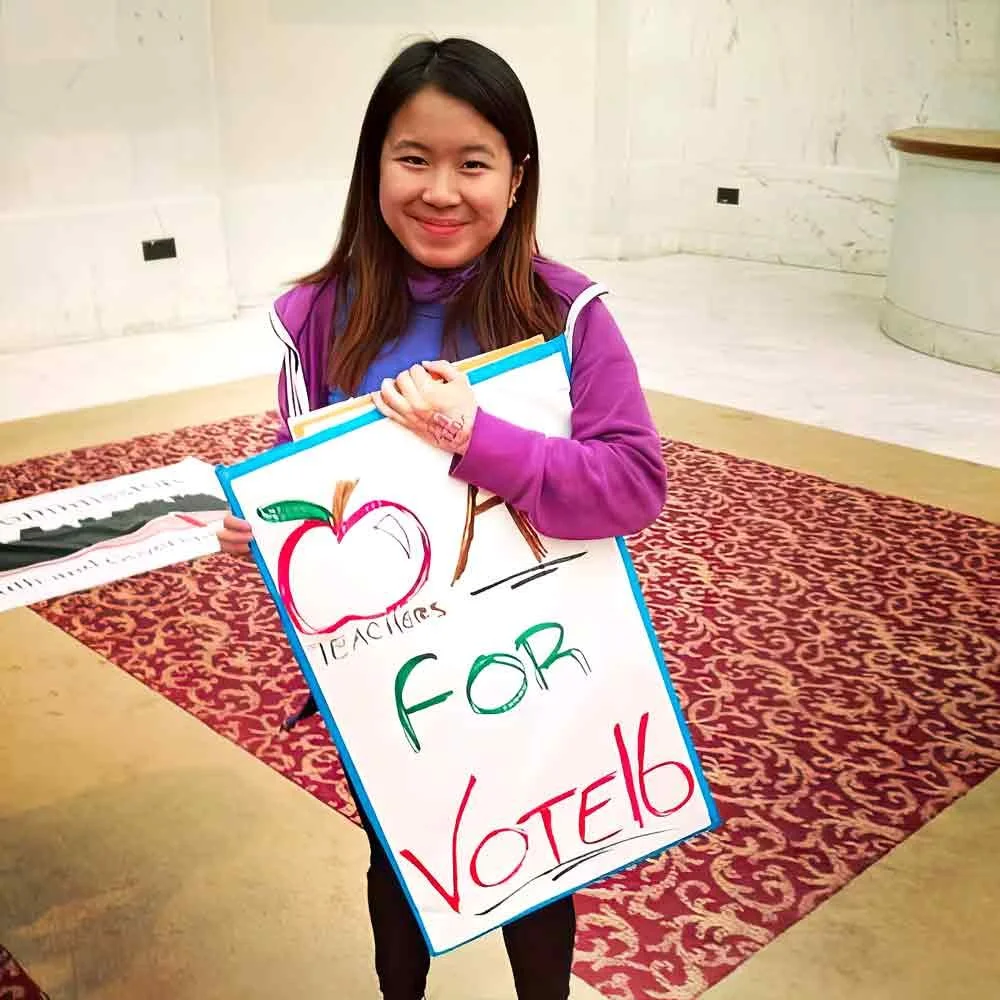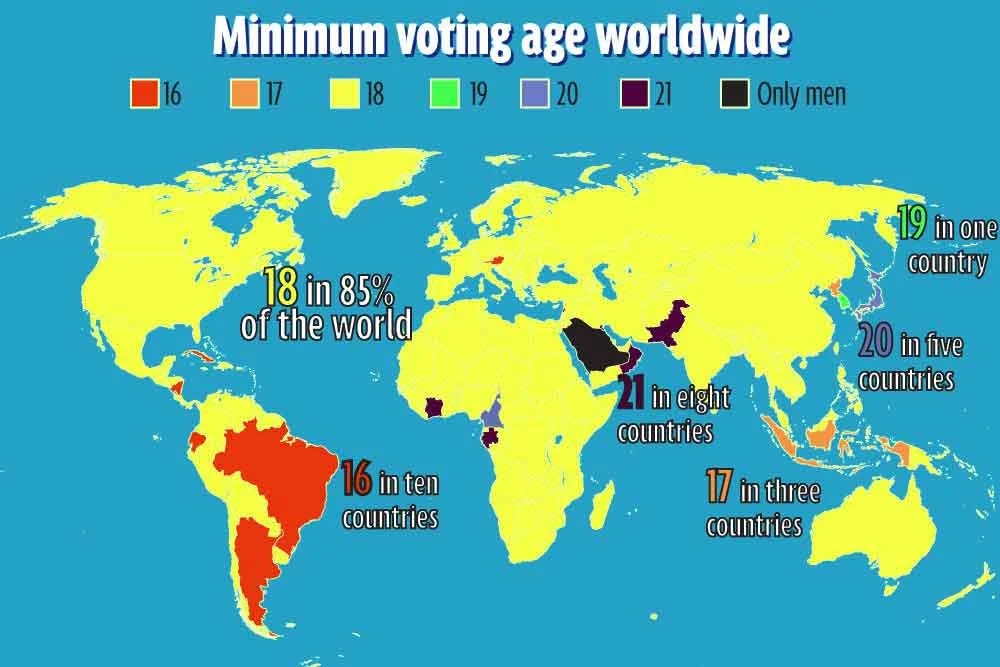Should Babies Be Allowed to Vote?
• Decades-old campaign button spruced up for the 21st century!
• Read •
Should Babies Be Allowed to Vote?
SILLY?
It might sound silly at first, but some people believe that even babies should have the right to vote. Their reasons might surprise you—and make you think twice!
A few years ago, an 8-year-old girl named Alisa Perales tried to sue California and the U.S. government.
Why?
Because they wouldn’t let her vote.
• Alisa Perales in 2023
Alisa said that not letting kids vote just because of their age was unfair. She believed it was a form of discrimination—treating people differently for no good reason.
• Alisa Perales in 2025
Even though her case was dismissed, her bold move brought attention to an idea that many adults had never seriously considered: what if the voting age didn’t exist at all?
This idea is sometimes called “ageless voting.” It means that anyone—no matter how old or young—should be allowed to vote.
A philosopher named John Wall wrote a paper about this in 2021, saying that age shouldn’t be a reason to leave people out of democracy.
A French children’s author and researcher named Clémentine Beauvais agrees. She even wrote a short book about it!
• Translation from French: The right to vote for children
At first, most people laugh when they hear the idea. Babies voting? Really?
But when they stop and think, it gets harder to come up with a solid reason to say “no.”
John Wall started thinking about this many years ago when one of his students was studying how kids in India were helping make decisions in children’s parliaments.
He began to realize that political decisions affect children, too, but they don’t get any say in those decisions. He felt that wasn’t fair.
Clémentine Beauvais adds another point: when more people vote, the decisions governments make often improve. Younger people think more about the future because they have more of it ahead of them.
Older people bring wisdom and experience. When these different viewpoints come together, the result is usually better for everyone.
Kids also ask deep, meaningful questions—like why there are wars, why we eat animals, or what money really is. When Greta Thunberg began speaking out about climate change at 15, many adults thought she was too young to be taken seriously. But now, many people agree with her ideas.
• Greta Thunberg, age 16
Of course, children can also be silly or not fully understand complicated topics. But here’s the thing: so can adults! If we took away the right to vote because someone wasn’t always serious or wise, then lots of adults wouldn’t be allowed to vote either.
And science shows that the human brain doesn’t fully mature at 16 or 18. Some parts of our brains aren’t completely developed until our 30s! So it’s hard to say exactly when someone is “ready” to vote.
So how would this work?
John Wall thinks that wanting to vote should be the only rule. If a child wants to vote but isn’t quite ready to do it alone, an adult could vote for them.
This already happens with some adults who have trouble thinking clearly—someone else helps them vote. For children, that person would usually be a parent.
But Clémentine Beauvais sees a problem with that idea.
What if a child wants to vote, but their parent says no? Or what if the parents are divorced and can’t agree?
Instead, Clémentine Beauvais suggests that every person should have the right to vote from birth, but it might take a few years before they actually use that right. It would be a symbol—something that shows they are already counted as part of society, even if they’re not filling out a ballot yet.
Some people argue that kids aren’t allowed to drive, drink alcohol, or get married—so they shouldn’t vote either.
But a researcher named Harry Pearse says that’s not a fair comparison. Driving and drinking can be dangerous. Voting is not. No one gets hurt just because someone voted for a silly reason. And again—adults sometimes vote for silly reasons, too!
In Scotland, 16-year-olds are already allowed to vote, so researchers have studied how they vote.
• The didn’t make Scotland green in the graphic above!
But we don’t know much about how younger kids, like 5-year-olds, would vote. Pearse thinks that’s exciting. He says it might add “healthy chaos” to the system.
When everyone gets one vote, no matter how old they are, politicians have to listen to more kinds of people and take all voices seriously.
Still, most people agree that we can’t just jump straight into letting babies vote. Clémentine Beauvais says we’d probably need to take small steps.
First, maybe let 14-year-olds vote, then 10-year-olds, and so on.
Each step would help society figure out how to keep things fair and safe. Over time, the voting age could disappear completely.
Some adults worry that democracy is getting stuck.
In the past, when that happened, people gave the right to vote to more groups—like women or people of color. That made democracy stronger.
Today, the only group still left out because of who they are is children.
To Clémentine Beauvais, this is about more than just politics. It’s about recognizing that everyone matters—not just the people who are old enough to work or pay taxes. It’s about how we all live together in a society.
She believes that letting someone like Alisa Perales vote is not only good for Alisa—it’s good for all of us.
Ageless (adj.) – not limited by age; for all ages
Ballot (n.) – a piece of paper or electronic form used to vote
Cognitive (adj.) – related to thinking, learning, or understanding
Constitution (n.) – a set of basic laws and rules that a country follows
Criterion (n.) – a rule or standard used to judge something
Deliberation (n.) – careful thought or discussion before making a decision
Democracy (n.) – a system of government where people vote to make decisions
Discrimination (n.) – unfair treatment of a person or group
Electorate (n.) – all the people who are allowed to vote in an election
Incrementally (adv.) – happening in small steps over time
Naive (adj.) – lacking experience or understanding; too trusting
Symbolic (adj.) – representing something important, even if it’s not used in a practical way
► COMPREHENSION QUESTIONS
— please answer with complete sentences
How old was Alisa Perales when she tried to sue California and the U.S. government — to let her vote?
Why did Alisa Perales think not allowing children to vote was unfair?
What is “ageless voting”?
Who is Clémentine Beauvais?
In what country are children helping make decisions in children’s parliaments?
Why might young people think more about the future than older people?
Give an example of a meaningful question a kid might ask. (If you don’t like the examples in the article you can write your own!)
How old was Greta Thunberg when she started raising awareness about climate change?
Note at least one country where 16-year-olds are allowed to vote.
In the past, only men could vote, and usually only white men. Over time, who else got to vote?
OPTIONAL: Watch these two short videos about giving young people the right to vote.

